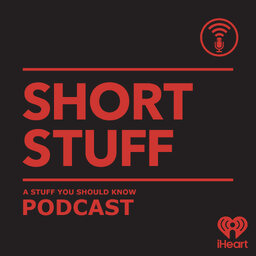The Lowdown on Anonymous
Anonymous is an amorphous group of hacktivists with no single leader or power structure. Some call them heroes, others call them criminals. Can they be both?
Learn more about your ad-choices at https://www.iheartpodcastnetwork.com
 Stuff You Should Know
Stuff You Should Know


